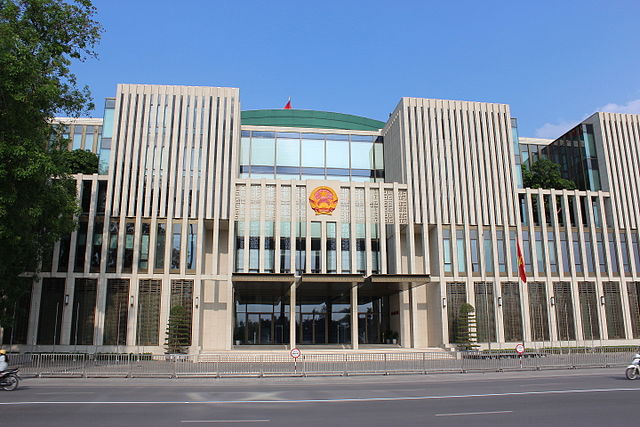
In today’s business environment, foreign companies operating in Vietnam often include a non-competition provision or agreement in their labor contracts with their employees. However, as this type of provision is somewhat rare in Vietnam as well as being unfamiliar to Vietnamese administrative agencies and Courts, there are few persons with knowledge of the effects and implications of such a provision.
Therefore, in this Insight, we would like to share with you our knowledge and experience with regard to (i) the definition of what constitutes a non-compete agreement in employment, (ii) why non-compete agreements are typically compulsory provisions in most labor contracts of foreign companies operating in Vietnam (though Vietnam law does not require or regulate them), and (iii) how non-compete agreements are applied and interpreted in the context of Vietnam law.
Definition of a Non-Compete Agreement
During the formation and development of a company, a significant amount of useful information is collected, developed and secured by the company. This may consist of information concerning customer relationships, products, trade secrets, business know-how, price, etc. (Confidential Information).
A recruited employee’s access to Confidential Information is dependent on their position and job duties with the company. A potential risk is that the employees will use such Confidential Information to create benefits for themselves, such as:
- Disclosure of the Confidential Information to competing companies for illicit benefits; or
- Employees may establish or participate in a competing company operating along the same business lines as the former company and use the Confidential Information that they obtained to compete with the business operations of the former company. For instance, the employee may use the information to attract customers or employees from the former company that they worked for.
Such actions by trusted employees will likely cause severe damage to the company. In addition, in light of the significant cost in financial and human resources used to accumulate this information, it is imperative for the company to establish legal barriers to protect its Confidential Information. One of the barriers utilized in the labor contracts of foreign companies are provisions for non-competition. The purpose of such provisions is to protect the company from the above mentioned unforeseen and harmful behaviors of trusted employees.
Prior to the influx of foreign companies trading in Vietnam, non-compete provisions have not been common. Therefore, the custom and usage of these types of provisions have not developed in the context of Vietnamese law.
Legal Validity of Non-Compete Agreements
In common law countries, such as the United Kingdom or the United States, a non-compete agreement is legally valid when it meets three main conditions:
- There must be a legitimate interest that the company wishes to protect (such as a trade secret or business know-how that differentiates between the products of the company and competing companies);
- The measures taken to restrict or not allow the competition shall be reasonable (i.e. not unreasonable when compared to the interests that the company would like to protect). The reasonableness of restricting or not allowing the competition is assessed according to three different criteria: (1) geographic range to which the measure is applied, (2) the period of time that the measure is applied, and (3) the scope of the specific measure to be applied; and
- The measure of restricting or not allowing competition does not conflict with the public interest (for instance, a non-compete provision cannot be applied to a doctor because the duties of doctors are essential for community health).
In Vietnam, there have not been any specific regulations enacted regarding non-compete agreements. Therefore, the recognition and application of non-compete agreements are still developing and somewhat controversial in Vietnam.
Application of Non-Compete Agreements in Vietnam
Are non-compete agreements valid?
From the perspective of labor, the existence of a non-compete agreement obstructs the working rights of employees and interferes with the rule of ‘labor freedom’. Indeed, Article 10.1 of the 2019 Labor Code provides the right of the worker ‘to work for any employer and in any place which is not prohibited by the law’, and Article 19.1 of the 2019 Labor Code also states that ‘the employee has the right to engage in labor contracts with several employers, but must ensure the fulfilment of the agreed contract terms’. If a non-compete agreement is made, it means that the employees will be obligated to waive their legitimate rights. So, the question is: Is a non-compete agreement valid under the regulations of the labor law?
The 2019 Labor Code regulates the relationships between the employer and the employees that arise from the labor contract. Thus, where a non-compete agreement is contained in the labor contract (in a provision or an appendix of the labor contract), the content of such non-compete agreement does violate the principles provided in Article 15.2 of the 2019 Labor Code which allows the worker the ‘freedom to enter into a labor contract which is not contrary to the law, the collective labor agreement and social morality’.
However, when researching the civil law aspect of non-compete agreements, we found a statement of the People’s Court of Duc Hoa District, Long An Province that the non-compete agreement is a valid type of civil transaction . However, this statement is controversial since the argument of the People’s Court of Duc Hoa District is not overly persuasive. The People’s Court of Duc Hoa District solely bases its ruling on the ‘willingness’ of the parties, i.e. which is only one out of three conditions for the validity of a civil transaction provided in Article 122.1 of the 2005 Civil Code (currently Article 117.1 of the 2015 Civil Code) to determine the validity of a non-compete agreement. In our opinion, if we read Article 122.1 of the 2005 Civil Code (currently Article 117.1 of the 2015 Civil Code), the non-compete agreement would be deemed invalid because under Article 122.1.(b) of the 2005 Civil Code (currently Article 117.1.(c) of the 2015 Civil Code), the non-compete agreement will still violate several provisions of the labor code as mentioned above.
Thus, the identification of the validity of non-compete agreement is totally depending on the consideration and the legal point of view of the judges when handling the dispute.
What is the applicability of non-compete agreement before, during and after the employment?
A non-compete agreement can be applicable before, during and after the employment. Specifically:
If a non-compete agreement is entered into before the employment commences, the employees may choose whether or not to work for the employer. If the employees decide to work for the employer, they will be fully aware of their responsibilities when entering into the employment. Furthermore, if the non-compete agreement is signed prior to employment, the probability of proving that it is a civil transaction is higher because at the time of signing, the parties were not bound by the employment contract.
If the non-compete agreement is entered into during the period of employment, the employer should add the following contents into the labor contract in an appropriate way in the form of commitments of the employees: (i) a non-disclosure agreement, (ii) avoiding conflicts of interest and (iii) a code of ethics. Concurrently, the contents of such commitments should be also provided in the internal labor regulations of the employer to use as the basis for handling the employees’ potential violations during their employment. Also note that, under the prevailing labor law as well as in our experience of working with the Department of Labor – Invalids and Social Affairs of Ho Chi Minh City and the Ho Chi Minh City Export Processing and Industrial Zones Authority, the company cannot prohibit the employees from committing an act which is a conflict of interest (because of the reasons as stated above) but only can provide that the employees have the responsibility to notify the company when entering into a transaction causing a conflict of interest with the company. If no notification is given, such an act will be deemed as a violation and be handled accordingly. This is an indirect way to prevent a conflict of interest, because we have never encountered any case of an employee notifying the company about such conflict of interest prior to entering a transaction or committing a conflict of interest (because no company would approve of a conflict of interest beforehand).
If the non-compete agreement is applied after the termination of employment, as mentioned above, such agreement will be taken under the Court’s consideration in the context of the dispute which has arisen.
How does a company increase the chances that a Non-Compete Agreement will be enforceable?
To strengthen the validity and decrease the possibility of the non-compete agreement being rejected by the Court, we would recommend that businesses take the following steps which are based on our experience with the Court:
Firstly, there should be a separation of the non-compete agreement from the labor contract between the employer and the employee. This means there should be a separate agreement created, and the contents of the non-compete agreement should not be added into the contents of the labor contract. The reason for this is that if the terms of the non-compete agreement are inserted into the labor contract, the Court would likely consider the provisions against labor limitations under the labor law instead of considering it as a civil agreement under the civil law.
Secondly, the period of validity and the scope of application of the non-compete agreement should be limited to a reasonable time and scope.
Thirdly, the contents of the non-compete agreement need to have a reasonable balance between rights and obligations of both parties. It is likely that the Court would more easily accept the provision if the non-compete agreement indicates an arms-length civil transaction. This means that there is an easily definable equitable balance between rights and obligations of both parties (the rights of one party are the obligations of the other party and vice versa). As for the employee, there should be a clear consent to forgo his/ her rights for a reasonable time period. As for the employer, there should be reasonable compensation offered for the benefit of having the employee abstain from using his/her rights (this may be an amount of money or a share of profits depending on the agreement between both parties). It would be advisable to avoid the case where the Court would consider the non-compete agreement as a unilateral imposition of the employer’s will on the employee (who is always considered as a disadvantaged party in his/her relationship with the employer under Vietnamese law).
Finally, a note concerning the penalties contained in a non-compete agreement when an employee violates the terms: Instead of completely prohibiting the employee from freely working for a third party (and there should not be a complete permanent prohibition), the employer should consider a monetary penalty or a fine for a violation of the terms of the non-compete agreement in order to (i) give color to the non-compete agreement as a civil transaction between both parties to avoid having the case being considered as a violation of the regulations under the labor law (i.e. violating the employees’ freedom to work), (ii) establish a basis to request that the employee compensate the company when he/she violates the non-compete agreement which leads to a dispute (a fine for violation would be more effective than a request for compensation due to the requirement to prove the actual damage caused to the party requesting compensation), and (iii) the employee will be fully aware of the consequences if he/she violates the non-compete agreement.
If you want to discuss with us about your critical issues in non-competition, protection of trade secrets, confidential information and intellectual property of the company and other labor issues under the Vietnam labor law, our Labor Lawyers and Litigation Lawyers are always available at info@letranlaw.com.




















 LE & TRAN
LE & TRAN Stephen Le
Stephen Le







